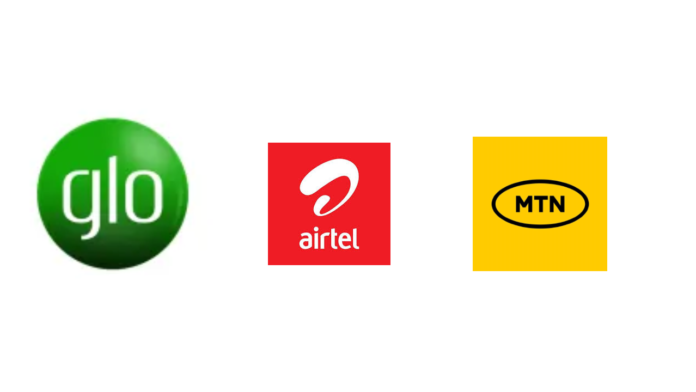Nigerians are facing a poor mobile network quality despite paying 50 per cent more for calls and data, drawing criticisms from consumers hard hit by a cost-of-living crisis.
Several consumers told BusinessDay on Tuesday that they were dissatisfied with frequent poor service delivery by network providers, noting that they must raise network quality to match consumer spending.
Joy Akor, an Abuja-based subscriber, said despite having sufficient data, she struggles to access the internet due to the unreliable network connection.
“The network has been very bad. I have been getting server errors all morning,” she told BusinessDay at 11.35 am on Tuesday.
She added that downloading or watching a video could take nearly an entire day, hoping that telcos would raise the quality of their service.
Kingsley Eze, another Abuja-based subscriber, shared a similar experience. Although he had sufficient data, he was unable to use it due to persistent network issues.
“Sometimes, it takes up to 24 hours for data purchased to reflect. I have the data, but I cannot use it the way I need to due to poor network quality,” he said.
Adeola Mustapha, an online food vendor, recounted how a poor network has affected her business.
“Consistent network failures have had serious impact on my business. At one time, a customer ordered a pot of soup and other food products. After preparing it, I sent my dispatch rider for delivery, but due to network issues, he could not reach the customer when he arrived. He had to return with the food and I still had to pay him for the delivery,” she explained.
She urged telecom operators with poor service records to make urgent improvements, stressing the negative impact on individuals and businesses alike.
The Nigerian Communications Commission (NCC) recently approved a 50 per cent raise in the cost of calls and data offered by mobile network operators. The situation is expected to improve investments in the sector and create several jobs.
In a publication dated February 6, 2024, Aminu Maida, the then executive vice-chairman of the NCC, assured the public that the commission would hold service providers accountable for poor service delivery.
However, the National Association of Telecoms Subscribers (NATCOMS) does not believe the network providers are delivering quality service. The group issued an ultimatum to service providers on Tuesday, demanding improvements or face potential legal and regulatory action.
Deolu Ogunbanjo, NATCOMS president, described the increase as unjustified given the continued deterioration of network services.
In an interview with BusinessDay, Ogunbanjo noted that subscribers are paying more for data that remains largely unusable due to persistent service disruptions.
Ogunbanjo said the increase is causing hardship for subscribers who now pay more for data services that remain unreliable.
According to him, “Some Nigerians are complaining and I have personally noticed it. I buy data and sometimes I cannot even use it because of a poor network. The poor service persists despite the tariff hike,” he said.
He however attributed part of the delay in service improvement to the time it takes telecom operators to procure and install radio equipment needed for quality service delivery, noting that such equipment is dollar-denominated and subject to importation delay.
Telcos now investing
But Tony Emoekpere, president of the Association of Telecommunications Companies of Nigeria (ATCON), said the sector is seeing renewed investment after a period of stagnation.
Emoekpere, in a chat with BusinessDay, acknowledged that the industry previously suffered from limited investment due to tough economic conditions. However, operators are currently reinvesting in infrastructure to enhance network quality.
“Investments are beginning to pick up and I believe that, in the near future, many of these challenges will be addressed,” he said.
He added that while telecom companies are already working on network upgrades even before the recent tariff hike, infrastructural improvements take time, especially when dependent on imported equipment.
Emoekpere acknowledged that although the recent tariff hike has sparked concern among subscribers, telecom operators had been working on network upgrades before the new rates were introduced.
“Most networks were already making efforts to enhance efficiency. The main setback was the decline in investments, but that trend is now reversing. Still, upgrading infrastructure takes time, especially when the equipment needed must be imported.”
He identified key barriers to improved service delivery, including vandalism and various operational challenges, noting that these issues continue to significantly hinder network performance.
On the matter of compensating subscribers for poor service, Emoekpere stated that while compensation policies differ from one operator to another, such measures have been applied in the past and could be reintroduced if necessary.
“Every operator has its own approach to compensation. If the need arises, they will offer redress to the affected customers, just as they have done before,” he assured.



